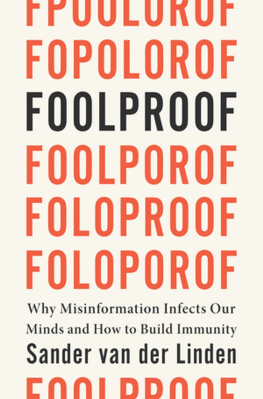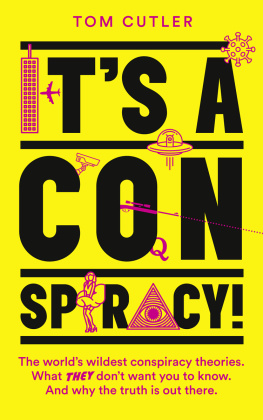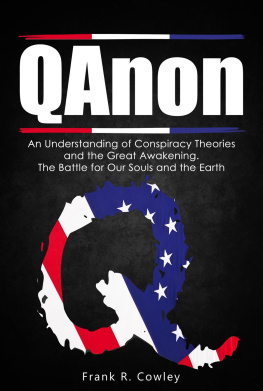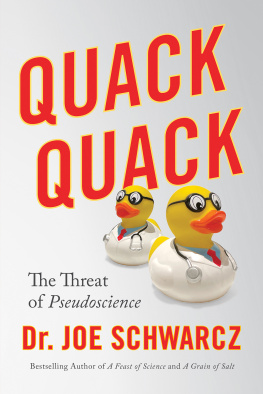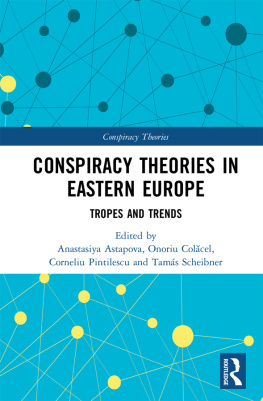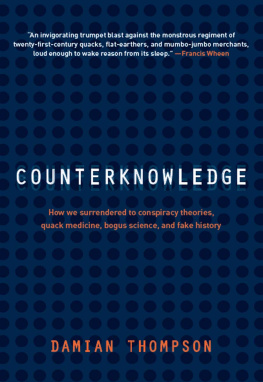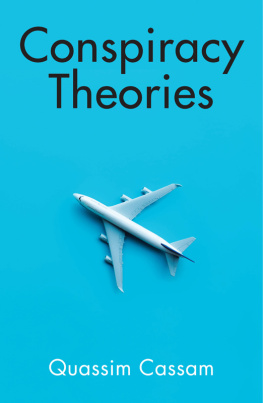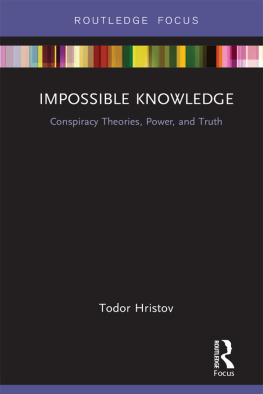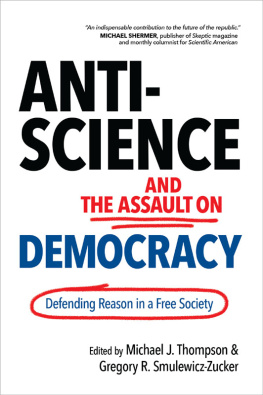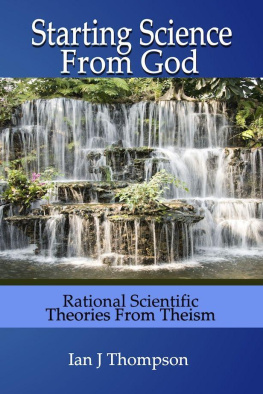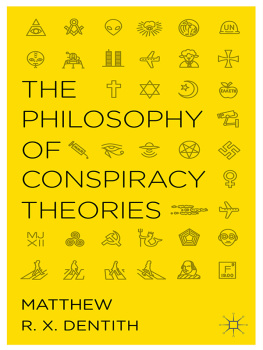I am very lucky to be represented by Simon Trewin, who put me in touch with Toby Mundy of Atlantic Books, the most inspiring editor I have ever worked with. I would also like to thank Emma Grove for her advice and moral support. Angus Broadbent and Igor Toronyi-Lalic read early drafts of chapters and told me that I could do better: they were right. My dear friends Luke Coppen, Stephen Hough and Harry Mount egged me on; Milo Andreas Wagner expertly identified problems of style and structure, and also created a website, www.counterknowledge.com, where bloggers can join the fights I have picked in this book. Im very much in his debt. Ben Goldacre, arch tormentor of scientific snake oil salesmen, generously supplied me with extra ammunition. Finally, I will always be grateful to the crime novelist Stav Sherez, who came up with the word counterknowledge. Why didnt I think of that?
Knowledge and Counterknowledge
The US government knew in advance about the plan to crash passenger jets into the World Trade Center. There is a link between childhood autism and the MMR triple vaccine against measles, mumps and rubella. A Chinese fleet circumnavigated the globe in the early fifteenth century, reaching America seventy years before Columbus. The structure of a cell is too complex to have evolved through natural selection.
All four of these statements have been presented as fact by reputable publishing houses, discussed respectfully by newspaper columnists, quoted by politicians and circulated on the internet. Tens of millions of people believe them to be true. Yet all four are falsethat is, factually incorrect.
This is counterknowledge: misinformation packaged to look like factpackaged so effectively, indeed, that the twenty-first century is facing a pandemic of credulous thinking. Ideas that, in their original, raw form, flourished only on the fringes of society are now being taken seriously by educated people in the West, and are circulating with bewildering speed in the developing world.
We are lucky to live in an age in which the techniques available for evaluating the truth or falsehood of claims about science and history are more reliable than ever before. Yet, disturbingly, we are witnessing a huge surge in the popularity of propositions that fail basic empirical tests. The essence of counterknowledge is that it purports to be knowledge but is not knowledge. Its claims can be shown to be untrue, either because there are facts that contradict them or because there is no evidence to support them. It misrepresents reality (deliberately or otherwise) by presenting non-facts as facts.
Obviously, only claims about the material world can be demolished empirically. Many religious doctrines, by their nature, cannot be tested by the evidence of our senses and therefore do not fit neatly into the category of counterknowledge, however preposterous they may be. Science cannot tell us whether God exists or whether there is such a thing as reincarnation. Religion enters the realm of counterknowledge only when it makes factually incorrect statementswhich certain religions, such as fundamentalist Christianity and Islam, do with alarming frequency. Creationists, for example, spend most of their time dismissing the overwhelming scientific evidence showing that all life evolved through natural processes of random mutation and selection. But when they do make testable claims of their ownfor example, that there was a worldwide flood about 4,000 years agothey are shown to be utterly false.
One of the greatest legacies of the European Enlightenment is a scientific methodology that allows us to make increasingly accurate observations about the world around us. This methodology is based on the assumption that all we need in order to comprehend nature is a solid understanding of the laws and processes that we can observe and test in the natural world. The supernatural does not enter the equation, because it does not provide us with any explanations that can be tested empirically.
That legacy is now threatened. And one of the reasons for this, paradoxically, is that science has given us almost unlimited access to fake information.
Some bogus material is easily spotted: its theories are clearly outlandish and the individuals who champion them are dishonest or gullible. Most of us have acquaintances who are susceptible to conspiracy theories. You may know someone who thinks the churches are suppressing the truth that Jesus and Mary Magdalene sired a dynasty of Merovingian kings; someone else who thinks AIDS was invented in a CIA laboratory; someone else again who thinks MI5 had a hand in the death of Diana, Princess of Wales. Perhaps you know one person who believes all three.
Or do you at least half-believe one of them yourself? We may tell ourselves that only oddballs subscribe to bogus history and bogus science. We assume that we ourselves are immune to the false logic of the conspiracy theory. In reality, we are more vulnerable to it than at any time for decades.
I was at a dinner party recently where a Liberal Democrat-voting schoolteacher voiced his doubts about 9/11. First, he grabbed our attention with a plausible-sounding observation: Look at the way the towers collapsed vertically, instead of toppling over. Jet fuel wouldnt generate enough to heat to melt steel. Only controlled explosions can do that. The other guests, not being professional structural engineers (for whom there is nothing mysterious about the collapse of the towers) pricked up their ears. How fascinating! they said. Youre right, it did seem strange
For an awful moment, it looked as if the teacher had won some converts. But then, fortunately, one or two guests thought more carefully what they were being asked to believe. If there was a controlled explosion, then the American authorities helped murder thousands of US citizens. Why? The people at the dinner party disliked George W. Bush, but they didnt think he was a James Bond villain. The Lib Dem teacher switched tack and wheeled out the fact (also circulated by the former British government minister Michael Meacher, MP) that the US Air Force stood down its fighter jets that morning. But another guest had read an article exposing this claim as rubbish. The air force did not stand down its jets, he explained; but it could not intercept the hijacked planes because the terrorists had turned off the transponders that would have allowed ground radar to pick out the planes from the 4,500 in US air space at that moment. The audience turned against the teacher, who ended up stumbling pathetically down a rhetorical escape route: Im just saying that we shouldnt believe everything we are told.


